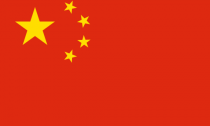
Since winning the UN Environment Programme (UNEP) Young Champions of the Earth prize 12 months ago, Better Blue founder Miao Wang has taken China’s diving community by storm.
Her Better Blue foundation is committed to enabling more people to learn to interact with the oceans scientifically through shaping a more responsible and stronger diving industry.
The four major fields of Better Blue include marine citizen science, marine public education, industry development support and endangered species and habitat protection.
Better blue builds capacity within diving communities by holding events to raise awareness about marine conservation and through education programmes for divers.
Now, Better Blue has fast-tracked its progress to become one of China’s top ranking marine non-governmental organizations, taking into consideration its fundraising efforts, offline activities and exposure.
In 2018, Better Blue raised US$260,000. Today, its fundraising capacity has reached US$570,000, with online exposure increasing more than 500 per cent.
“The Young Champions of the Earth Prize has been critical to help us expand our international influence,” says Wang. “It is a strong achievement to be able to pitch to new partners and celebrities.
“It has given us a lot of exposure at meetings and forums, including recognition from peers, enabling us to build more effective relationships at the global level.
“We are currently providing case studies around how female role-players are becoming instrumental to saving marine ecosystems. We are also exploring how we can contribute more to UNEP’s work, both providing case studies, but also from the scientific perspective, as we run citizen science programmes.”
“The prize has helped us grow our brand, and more recognition has followed. For example, I have since participated in the Youth Climate Summit and as Youth Climate Ambassador by the Center of United Nations Constitutional Research.”
“When we got the award, we were one of the very few Chinese organizations focused on marine ecosystem issues. Over the last two years, we have seen a trend: more people are focusing on these issues owing to our recognition through the prize and UNEP’s #CleanSeas campaign, urging government and civil society to focus more on marine plastic issues. It was great timing for us.”
Today, Better Blue has 14 city communities, 9 cooperated diving centres and 6 university associations. The foundation has cooperated with marathons, organized exhibitions and ocean talks, bringing marine conservation to audiences offline on a larger scale.
“It’s been really important for us to meet with divers in person and engage communities offline to expand our conservation messages and make people aware of the massive threats our oceans face, like warming, acidification and plastic pollution. I think most people are not aware of these issues, and speaking about them helps to bring the reality alive.
“Most diving communities are aware of the threats, but our programmes aim to empower them to take action and collect information, so they feel a bigger part of the solution. We find this approach has impact and helps us gather better data to further protect our marine resources.”
“This year we have exceeded our targets, especially through our Elysium Epic event, which invited Sylvia Earle to China. This single event had six cross-border collaborations, and attracted the participation of more than 40 celebrities, reaching an audience of 300 million,” said Wang.
“This is just the beginning! We are excited to see how we can expand efforts to protect the oceans. We’re hoping for bigger and better collaborations this year, and thank the Young Champions of the Earth Prize, UNEP and Covestro for this truly excellent opportunity and support.”
Gabriel Grimsditch, Programme Management Officer of the marine and coastal ecosystems branch at UNEP, said: “The diving community is an important voice for marine conservation, and UNEP is supporting awareness-raising and sustainable tourism globally.”
“This includes supporting the Green Fins initiative, in collaboration with Reef World, which is the first global standard for sustainable dive tourism and is applied in 11 countries around the world,” he added.










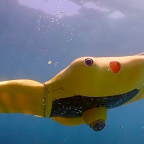
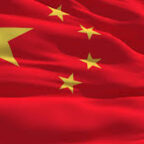
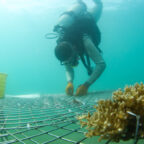
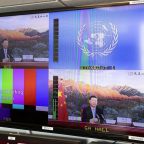

Social Profiles